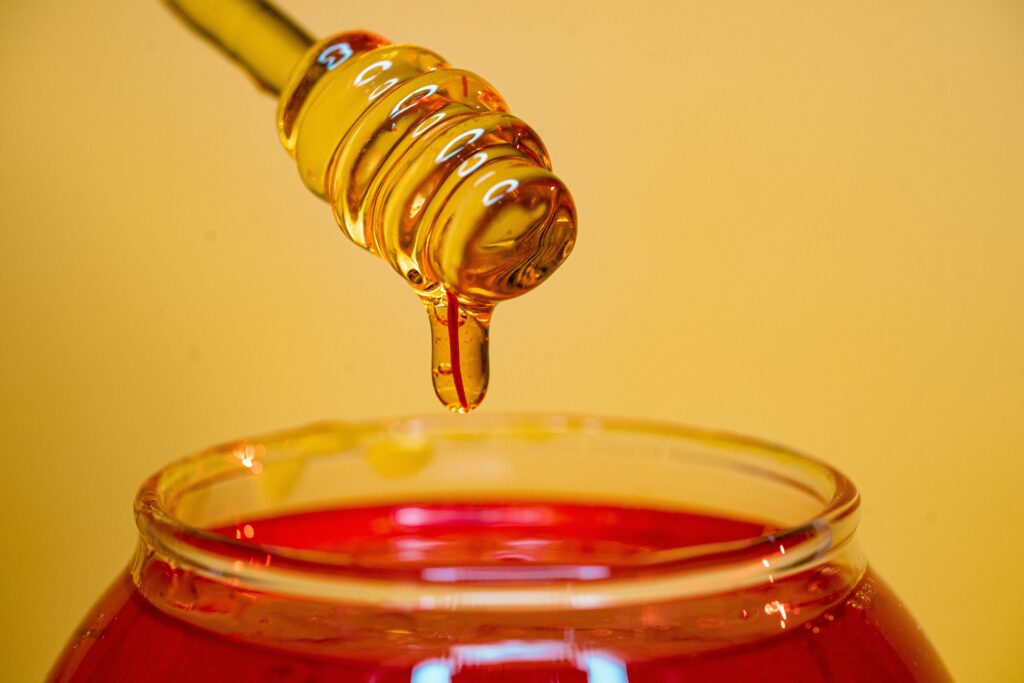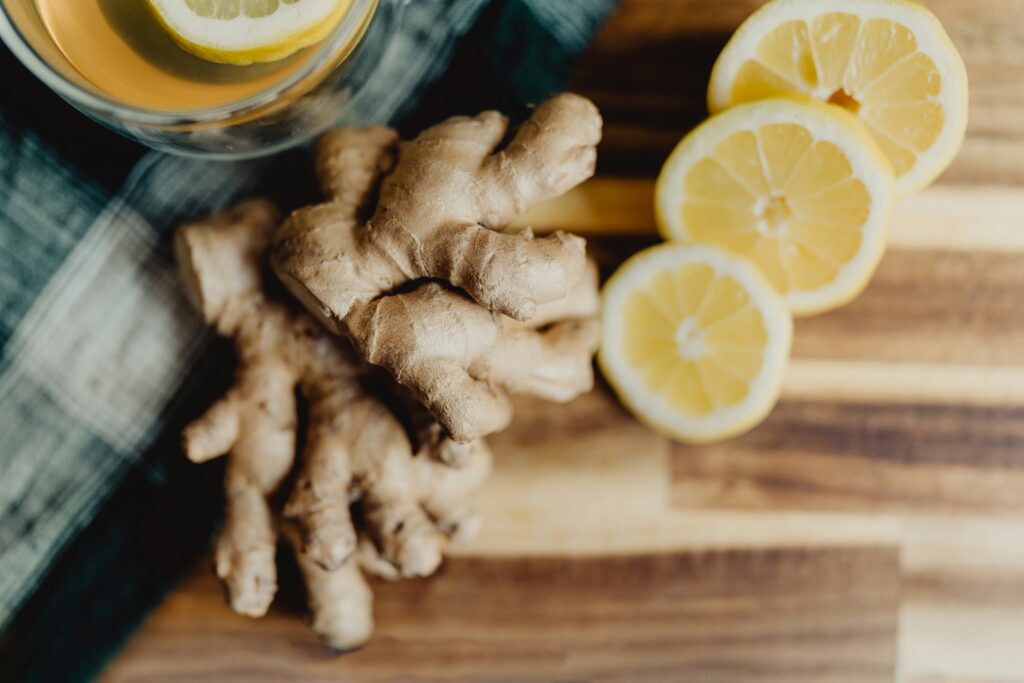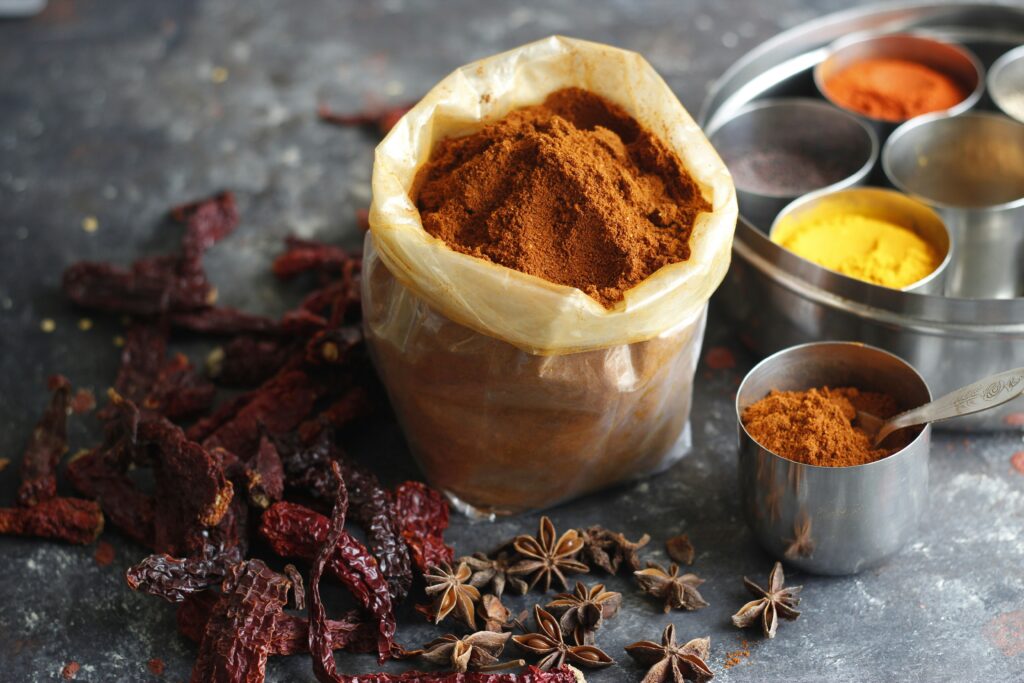Introduction:
Let’s face it, we all have been sick at some point of our lives and no one enjoys being sick. Some of you reading this blog might have been sick in the last 30 days. Whether it’s a pesky cold, a nagging headache or an upset stomach we look for medications, not realizing the perfect medicine might be available in our kitchen. Many of us think of remedies as an old grandma’s tales but in reality some of them are quite true and backed by science.
In this blog we will guide you about the Top 5 remedies backed by science for common ailments. These remedies are not only convenient but also very cost effective. From sore throat to an upset stomach you will learn how to treat them naturally. Let’s explore how everyday ingredients like honey, ginger and peppermint can play a major role in your wellbeing.
1. Honey for Cough and Sore Throat:
Honey is known for its antibacterial, anti-inflammatory and soothing properties. If you are having a sore throat or chest rattling, honey can cone in quite handy. The positive role of honey in sore throat has been confirmed by many studies. A 2012 study published in Pediatrics found that one full spoon of honey was more effective than dextromethorphan (A common cough suppressant) for reducing night time coughs in children aged 1 to 5 years old. World Health Organization (WHO) has listed honey as a demulcent. Demulcent is a substance that has soothing properties and relives irritation of mouth and throat.
How to Use it:
The best way to use honey if you are sick or healthy is to take one tablespoon of raw honey with warm water or some herbal tea. You can squeeze a lemon to add some Vitamin C to it. Someone with night time coughing should take it at night otherwise having it early in the morning is also good.
Important Note: Honey should not be given to an infant of age less than a year due to the risk of infant botulism.
Myth: All Honey is The Same:
Not every type of honey that you see in a super market hold the same benefits. Raw, unfiltered honey and Manuka Honey has more potent antibacterial effects compared to processed honey.

2. Ginger for Nausea and Digestive Issues:
Ginger is present almost every kitchen. It is an essential part of many recipes. Ginger has soothing effects because it contains “gingerol” and “shogoal”. These two compounds relax the digestive tract and reduce symptoms of nausea and vomiting. This soothing effect of ginger is backed up by many researches. A systematic review of 12 studies concluded that ginger is effective in treating nausea caused by pregnancy, motion sickness, and even chemotherapy.
How to Use it:
You can add freshly grated ginger to hot water or a cup of tea.
You can add slices of ginger to smoothies or fresh juices.
Ginger capsules (200mg to 250mg) are also available in the market if you are unable to find fresh ginger.
Myth: Ginger works instantly for all stomach issues
Ginger is known for its soothing effect and treating nausea. However it is not a definitive treatment for all the stomach problems. Conditions like Food Poisoning or Gastroenteritis need specific medications prescribed by a healthcare professional.

3. Peppermint for Headache and Irritable Bowel Syndrome:
Many of us use peppermint for having a fresh breath but it can also relieve headaches. Peppermint has a compound called “menthol”. It has muscle relaxant and pain relieving properties making it a natural remedy for headaches and IBS symptoms.
A review published in 2016 found out that applying peppermint oil to the forehead and temples reduced headache symptoms significantly. Enteric-coated peppermint capsules have also shown positive results in reducing bloating and abdominal pain in people with IBS.
How to use it:
Dilute peppermint essential oil with a carrier oil and apply to temples to get rid of headaches.
Enteric-coated peppermint capsules are available in the market that can help you relive IBS symptoms.
Using enteric-coated capsules ensures that is gets dissolved in intestine and not stomach – preventing heartburn.
Myth: Drinking Peppermint Tea Can Cure IBS:
Peppermint tea or adding peppermint to green tea does have soothing effects but it lacks the amount of menthol required to relieve IBS symptoms effectively. Peppermint enteric-coated capsules are effective in treating symptoms of IBS.

4. Turmeric for Joint Pain and Inflammation:
Turmeric is commonly known for its anti-inflammatory properties. Turmeric get its bright golden hue from a compound called “Curcumin”. Curcumin is known for its powerful anti-inflammatory and antioxidant effects. Many people use this remedy for managing joint pain and symptoms of osteoarthritis because of its positive role and fewer gastrointestinal side effects.
How to Use it:
Turmeric is added to warm milk (not boiled) with a pinch of black pepper to enhance its absorption. It is then called golden milk.
Turmeric powder is added to many dishes, soups, stews and smoothies.
You can also consider curcumin supplements (make sure to get the one that is labelled as bioavailable).
Do not use turmeric in high doses because it can interact with blood thinners and other medications for diabetes. Always consult your healthcare provider before starting any kind of supplements.
Myth: A Pinch of Turmeric a Day Keeps Arthritis Away
Arthritis is a serious condition of the joints which is highly associated with joint pain and immobility. In order to achieve therapeutic results at least 500 to 2000 mg of curcumin extract is needed per day. Day to day cooking spice quantities lack the therapeutic amount for arthritis.

5. Epsom Salt Baths for Muscle Aches and Stress:
Epson salt also known as magnesium sulfate has long been used as a home remedy for sore muscles, stress and even minor sprains. Many people have swear by its relaxing and pain relieving effects.
Studies suggest magnesium is absorbed trans dermally and may help in relieving localized muscles tension and reduce stress. Further research needs to be conducted on how well magnesium is absorbed through the skin.
How to Use It:
Add 2 cups of Epsom salt to warm bath, soak for 12 to 20 mins twice a week.
You can add lavender essential oil for extra relaxing effect.
Myth: Epson Salts Have Detoxifying Abilities
This statement lacks scientific evidence despite having relaxing effects on muscles and easing aches. Epsom salt does not have detoxification properties.
Tips for Using Home Remedies Safely:
Before going to market and buying the above mentioned ingredients for your remedies make sure that:
You talk to your doctor if you have a condition, are pregnant or taking any kind of medication as they can interact with them.
Avoid sketchy products with vague claims instead use trusted sources for your remedies.
Before applying essential oils ensure you are not allergic to any one of the ingredients.
Do not increase the doses than recommended especially supplements.
Conclusion:
The world of home remedies is a vast one full of temptations. Many remedies promise miracles and cures of incurable diseases. While they can provide genuine relief for many common ailments, they should be used as complementary tools and not as a replacement for medical treatment.
Start with tried and true remedies like using honey for coughs and ginger for nausea. Always adjust your dosses according to the research studies and do not overdose yourself. Make sure to consult your healthcare provider if your symptoms get worse. Stay curious but also cautious.
The next time a headache strikes you or a cough that doesn’t go away you’ll know exactly which home remedy to try and why it actually works. If you liked this blog and want to know more about health related blogs go to my website Medrizz.com.
References:
FAQs:
Can I use these home remedies instead of seeing a doctor?
These remedies are great for managing mild symptoms of common ailments, but they shouldn’t replace professional medical advice—especially for persistent or severe symptoms. Always consult your healthcare provider before starting a new remedy, especially if you’re taking medication or have a chronic condition.
Is it safe to mix more than one remedy at a time?
Generally, yes—but in moderation. For example, you can drink ginger tea and also take a warm Epsom salt bath on the same day. However, combining supplements (like curcumin and peppermint capsules) or essential oils should be done cautiously. When in doubt, check with your doctor.
What kind of honey is best for treating a sore throat?
Raw, unfiltered honey or Manuka honey is best. These types have higher antibacterial properties compared to regular, highly processed honey found in most supermarkets.
Can peppermint tea help with IBS?
Peppermint tea has a mild soothing effect but doesn’t contain enough menthol to be considered an effective treatment for IBS. For that, enteric-coated peppermint capsules are recommended.
Is it true that Epsom salt helps detox the body?
No, the claim that Epsom salts “detox” the body is not scientifically proven. However, they can help relax muscles and reduce localized soreness and stress.
Can I give honey or ginger to my child?
Honey should never be given to children under 1 year old due to the risk of infant botulism. Ginger can generally be given to children in small amounts, but it’s best to consult your pediatrician first.

